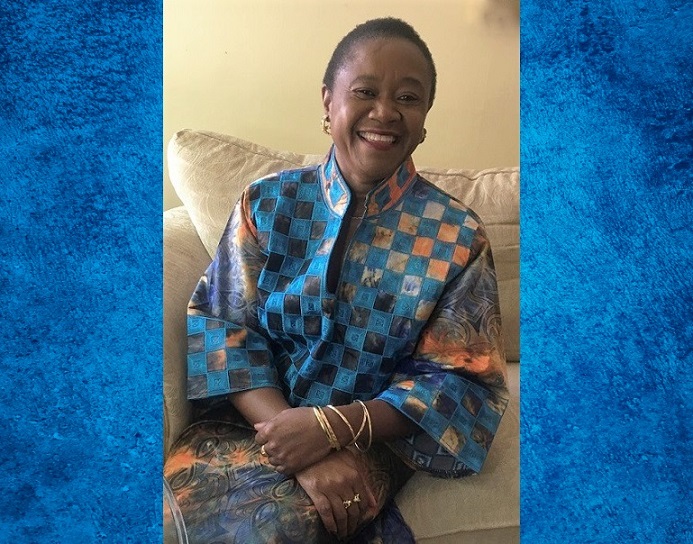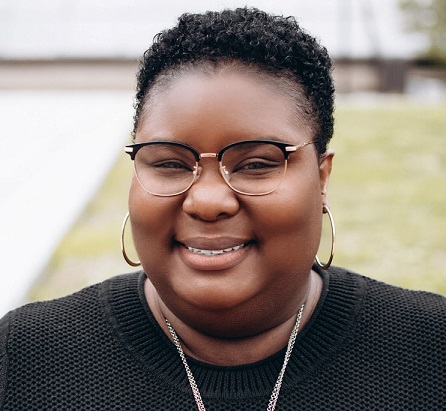We are back at work. It’s been a long time since we’ve interacted in person due to the COVID-19 pandemic. It’s been three years of isolation, fear, and heightened anxiety, and unfortunately, many lost their lives. Some of our pandemics, such as the gender-based violence pandemic, are constant in our communities. They become commonplace, we often go through days without seeing the destruction. The COVID-19 infection however catapulted everyone into chaos. And mixing these two pandemics- the COVID-19 pandemic exacerbated the situation of those already experiencing gender-based violence. Gender-based violence against women and children rose amidst the COVID-19 pandemic. The challenge to address both pandemics simultaneously remains a struggle, despite increased preventative strategies and resources. For some of us, it is our role to address the current complexities in this realm with those it impacts the most… Our clients.
We had to find creative ways of engagement during the COVID-19 pandemic. Technology-facilitated social media platforms became the forums that informed us on how the world was transpiring and formed the pathways for communication and escape pathways to consult with counsellors to devise safety plans – saving lives. They fostered some normalcy and created innovative communication systems for millions with their loved ones. However, with restricted movement, some homes had no access to tools to reach out for support, many experiencing gender-based violence did not find relief.
Immigrant Women Services of Ottawa – the crisis and counseling department saw increased reports of gender-based violence during the COVID-19 pandemic. The effects of the lockdown manifest in ripple effects; loss, grief, anxiety, and depression were common challenges presented by our clients. Children, too, were privy to the horror of their innocence shattered. Playgrounds, birthday parties, and sleepovers were off-limits. Children had to learn new ways of living, shifting their worldviews and affecting them psychologically. And how could anyone endure the collision of gender-based violence with the COVID-19 pandemic? With schools, camps and care programs closed, their safe spaces were no longer available.
Children were forced to stay at home, work side by side with their siblings in different stages of development, and parents; at their dining tables became witnesses to the mayhem. The kitchen and bedrooms, typically spaces that offered relief, comfort and solitude became public spaces that violated our sanctity. There-endless discussions on incomplete homework, resume writing for those who lost their employment, client challenges, and behavioural modification techniques due to aggressive outbursts due to heightened anxiety, anger, and grief from children and everyone. An unwelcome reversal of roles as parents became teachers and vice versa created enormous internal strife and general conflict in the home.
It has become clear that negotiating safer spaces is not a new concept for marginalized groups; time is of the essence for those fleeing violence. However, with the COVID-19 pandemic, the situation has become dire. The continued assault on our sensibilities culminated as the newscasts vibrated about the dead and dying and prevention strategies for not dying from the pandemic. Death was on everyone’s mind, and shame as well. There was the assumption that if one died from COVID-19, they were not diligent enough and were not using the COVID-19 protocols as directed by the health departments, creating barriers to seeking support.
For the victims of gender-based violence, the “blame the victim factor” came into play, a too familiar narrative rooted in patriarchal, and misogynistic rhetoric. There are also the misguided beliefs that shelters are abundant for women fleeing violence and that victims should readily move to these spaces, if they stay at home, then they are somehow at fault. This speaks to the limited understanding of the operations of the “housing” for vulnerable people in our communities.
I heard conversations with friends who wished they were back home in their countries of origin. They believed that it was safer somewhere else. “People are not dying as we see in our communities; we don’t hear it on the news,” they shared, and as such, identifying an exclusion. Their views, however, were refuted by others who argued that the pandemic was worldwide and, as such, staying put was best. “It was nothing personal, COVID-19,” they advised. A friend lamented, “for once, COVID-19 is not an African problem only,” as she reflected on historical global pandemics such as Ebola relegated to the African continent and with minimal support.
Some friends back home reasoned hearing less, of the food insecurity in Canada, attributing it to be due to the abundance of wheat farms in Canada- assumptive notions that I had to refute since child hunger is an issue in Canada. And as in most crises, some moments struck many as bizarre – hoarding toilet paper as people in other spaces grappled with food insecurities.
The cancellation of flights globally brought travel to a halt for many who wished to be with loved ones abroad; it created roadblocks. It was heart-wrenching for many whose families were so far away and for some who could not participate in the rituals assigned to the bereavement process when their loved ones passed due to the COVID-19 pandemic. Everyone struggled with limited access to loved ones who provide a source of nurturance, the most symbiotic relationships curtailed by restrictions.
The effects of the collision of both pandemics continue to manifest. The world begins to sigh of relief with the medical advancements with vaccine advancement. Unfortunately, although a historically well-known pandemic, gender-based violence remains a reality in some people’s lives. We know that gender-based violence is politically, culturally, religiously, and socially sanctioned- not cyclical or situational like some pandemics such as COVID-19, influenza, and Ebola.
When one experiences violence, they may experience food insecurity, poverty, and all the intersectionality that collide with gender-based violence. Psychologically, grief and loss are part of their daily existence. Isolation due to shame exacerbates the problem. During the COVID-19 pandemic, being with an abuser twenty-four-seven reinforced the abuser’s abusive behaviour since they have more power and control over their victims due to isolation. Abuse and COVID-19 exacerbated the isolation, increasing risk to those marginally living lives, rendering them powerless, with minimal or zero control.
Grief is always part of a traumatic event such as violence or health crisis-raw and ripe simultaneously and nuanced with past sufferings and struggles. As with the death of a loved one, so is grief due to COVID-19 and gender-based violence, there is no subscribed linear progression to feel or ways to address emotions. People cope and grieve differently and in ways that bring meaning to their struggles and lives. They may use alcohol, other mind-altering substances, food, online shopping, or anything to numb feelings of powerlessness and hopelessness. Perhaps a silent cry, sadness, anger, denial, and acceptance; confusion and fear cloud their thinking as notions of hope, joy, and happiness become distant, and ebb and flow.
I witnessed a shift in perspective for some – without judgment for the first time- I saw fellows who often distanced themselves from God speaking about God like a best friend. Utterances of “Oh my God, help us, God is on our side,” and “He is a loving God.” For some, hope arrived through prayer, a walk in the woods, and conversations with loved ones. Hope continues to fuel our spirits as we support others through their crisis with gender-based violence. Hope remains the pinnacle of our existence, especially for victims of gender-based violence.
Our stories of survival during the COVID-19 pandemic are more affluent than any I have heard in workspaces. The stories are tear-jerking. For some, the loss and grief are raw and unbridled. There are many survival recollections on both pandemics, on negotiating shared spaces and food insecurity- providing insight into a collective commitment to honouring our social contract. My favourite, as narrated by a student, is the ‘traveling plate’ story. She described it as bringing food for friends and family members who return the plate with food or sweets; round and round it goes. The other bravery, assisting a family of five from an abusive partner due to the absence of appropriate housing, offering shelter to them in a basement for months while observing the safety protocols of COVID-19.
Moving forward, we’ve learned there is no absolute certainty to anything. We’ve paradoxically learned new ways of living through infectious pandemics, new methods of communication through advanced technology, and staying in touch with each other, even within social distancing. Healing, whether from gender-based violence, COVID-19, or both, our loss is enormous, and our grief will require time to heal. We know that our lives cannot co-exist with the chaos of violence in our neighbour’s homes, children, and community. We know that normalizing violence in our homes is detrimental to our and everyone’s well being. Building back our lives with an emphasis on our mental health is a must, with the understanding of the complexities of the diverse experiences of multiple experiences. Prevention, education, advocacy and creating more resources for victims of gender-based violence must be a priority.
We are back! Our transition to the office through the hybrid model is a welcome relief to some clients with limited access to technology. Also, let us think about it; for some people, in-person engagement is better. There is no doubt some semblance of normalcy in the office – the beeping sound of the microwave as sweet smells of aromatic ingredients of cumin, fennel, and garlic fill the air. There are also many new ideas about sharing our space… a suggestion—tea drinking with Mandazi during break. And, yes, the chatter about the upcoming holidays and how it will all look and feel different this time, with family and friends, endless discussions about how life has changed for everyone. The office hallway is loud with conversation and laughter. It is the sound of resilience. The clients showing up, steadily, sometimes unannounced! And the counsellors remain steadfast in providing consistent and life-affirming support to immigrant and refugee women experiencing gender-based violence. Collectively, we hold the hope that our lives, our client’s lives, our communities with or without the COVID-19 pandemic, must be free from violence.
Josephine Nakato Basudde
Crisis and Counseling Manager
Immigrant Women Services Ottawa
Crisis Intervention and Counselling
Emergency – Help for Women – Help for Children – Contact Crisis Intervention and Counselling Services
Immigrant Women Services Ottawa
219 Argyle Avenue, Suite 400
Ottawa, Ontario
K2P 2H4
Tel: 613-729-3145
Fax: 613-729-9308







